Nyheter fra Pattaya - levert av Pattaya Mail
My RSS Feed
- Retiring abroad in an uncertain world: What Frank’s story in Pattaya teaches us about global policy and local riskPATTAYA, Thailand – “I left the U.S. for a quiet retirement, but somehow the paperwork followed me.” Frank (name changed for privacy), a 72-year-old former physics teacher from Arizona, moved to Pattaya almost a decade ago. Like many expats, he was drawn by the relaxed pace of life, friendly locals, and affordable health care. Over […]
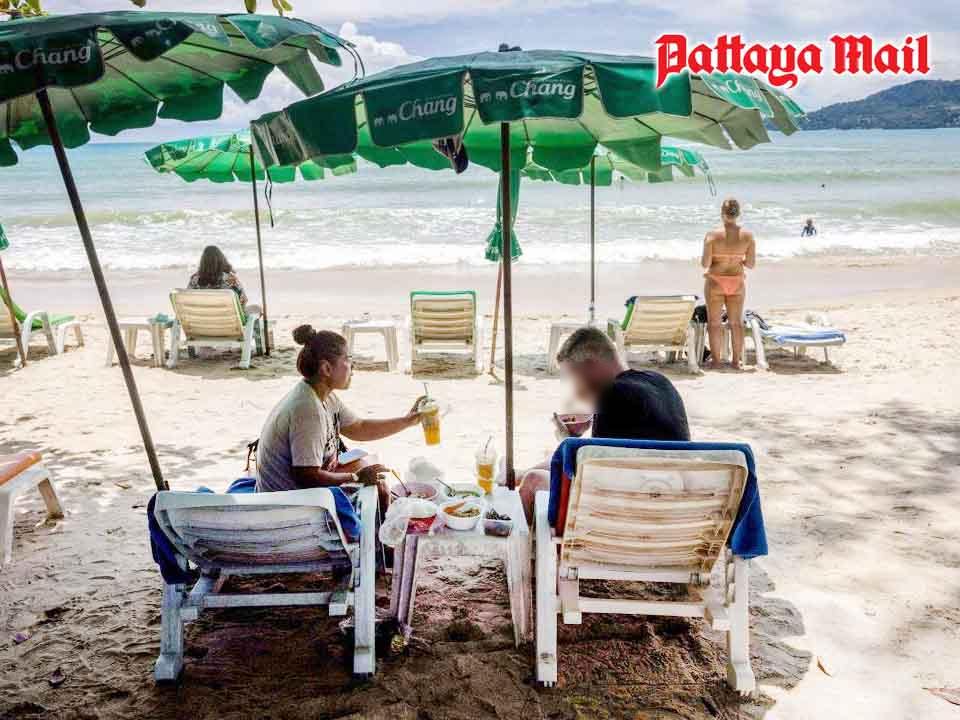


Retiree expats in Thailand enjoy a relaxed lifestyle – though some now face unexpected U.S. tax complications tied to overseas accounts. PATTAYA, Thailand – “I left the U.S. for a quiet retirement, but somehow the paperwork followed me.” Frank (name changed for privacy), a 72-year-old former physics teacher from Arizona, moved to Pattaya almost a decade ago. Like many expats, he was drawn by the relaxed pace of life, friendly locals, and affordable health care. Over the years, he built a community – coffee groups with fellow retirees, a local condo, and simple routines by the beach.
But in early 2024, he received a letter from the IRS – one that mentioned FATCA and FBAR violations related to his Thai bank accounts. His peaceful retirement was suddenly clouded by anxiety.
When foreign isn’t foreign anymore
Frank’s situation is not unique. American citizens are required to report foreign bank accounts if the total value exceeds $10,000 at any point in the year. The Foreign Bank Account Report (FBAR) and Foreign Account Tax Compliance Act (FATCA) are not new, but enforcement and cross-border data sharing are tightening.
While Frank had no ill intent, he had unknowingly failed to report two Thai savings accounts and a local investment fund. Worse, he’d never filed a will in Thailand, assuming U.S. estate documents would suffice—something many expats also mistakenly believe.
Global Shifts, Local Ripples
In 2024, U.S. lawmakers introduced proposals targeting foreign jurisdictions considered “tax favorable.” One draft policy—nicknamed the “revenge tax”—aims to impose a 20% minimum tax on foreign companies investing in U.S. assets from low-tax countries like Singapore, UAE, and potentially Thailand. [Source: Wall Street Journal, Feb 2024]This coincides with talk of a potential Trump return to the presidency, reigniting “America First” trade and tax rhetoric. The idea of tightening compliance for U.S. citizens abroad is gaining ground.
Though Thailand isn’t directly named, ripple effects are felt. Thai banks are increasingly cautious, requesting foreign tax documentation for large transfers. Some expats report delayed wire transactions and stricter KYC checks – particularly those with U.S. passports.
Visa Stability and the Retirement Question
Meanwhile, on the Thai side, rules for retirement visas—particularly the O-A and O-X categories—have seen adjustments in recent years, including higher income requirements and mandatory health insurance. [ThaiEmbassy.com, 2023 – “Changes to Retirement Visa Policies”]Although Thailand remains one of the most expat-friendly countries in Asia, the post-pandemic era has brought a more cautious tone to immigration policy. A visa isn’t a guarantee; it’s a privilege that can shift with policy winds.
The Legal Blind Spots
Frank’s story highlights three common oversights:
1. Underestimating U.S. obligations: Many assume moving abroad frees them from reporting to the IRS. It doesn’t.
2. Overlooking cross-border estate issues: Without a Thai will, local property can be frozen or disputed after death—even if there’s a U.S. one.
3. Ignoring currency and asset exposure: Funds parked in Thai banks or invested in local real estate may become difficult to repatriate if rules change.Quiet Resolutions
Frank eventually turned to a legal advisor in Pattaya who understood both U.S. compliance and Thai property law. Within a month, he had filed backdated disclosures, created a bilingual will, and restructured how his condo was held—ensuring fewer surprises later.
Takeaway
Retiring abroad remains a wonderful dream for many, and Pattaya continues to be a welcoming place for international retirees. But the world is shifting—faster than many imagine.
Between global tax enforcement, local visa tightening, and new scrutiny on international assets, planning isn’t just wise—it’s essential.
“It’s not about fear. It’s about peace of mind. That’s why we come here, isn’t it?”֎ This article is based on true composite experiences from expats living in Pattaya. It is intended for general awareness and does not constitute legal or tax advice. For individual guidance, consult a licensed advisor.
 Victor Wong (Peerasan Wongsri)
Victor Wong (Peerasan Wongsri)Victor Law Pattaya/Tax expert
Email: <victorlawpattaya@gmail.com> Tel. 062-8795414

4 June 04 2025Featuredhttps://www.pattayamail.com/?p=503616 - In Pattaya, drink water – get a broken face? Shocking assault sparks nightlife safety concernsPATTAYA, Thailand – A night out in Pattaya turned violent for a 37-year-old woman who says all she wanted was a quiet night out—and a glass of water. Ms. Methip Wongphakdee has come forward to the media with CCTV footage and a bruised, swollen face after being assaulted at a well-known restaurant and nightlife venue […]
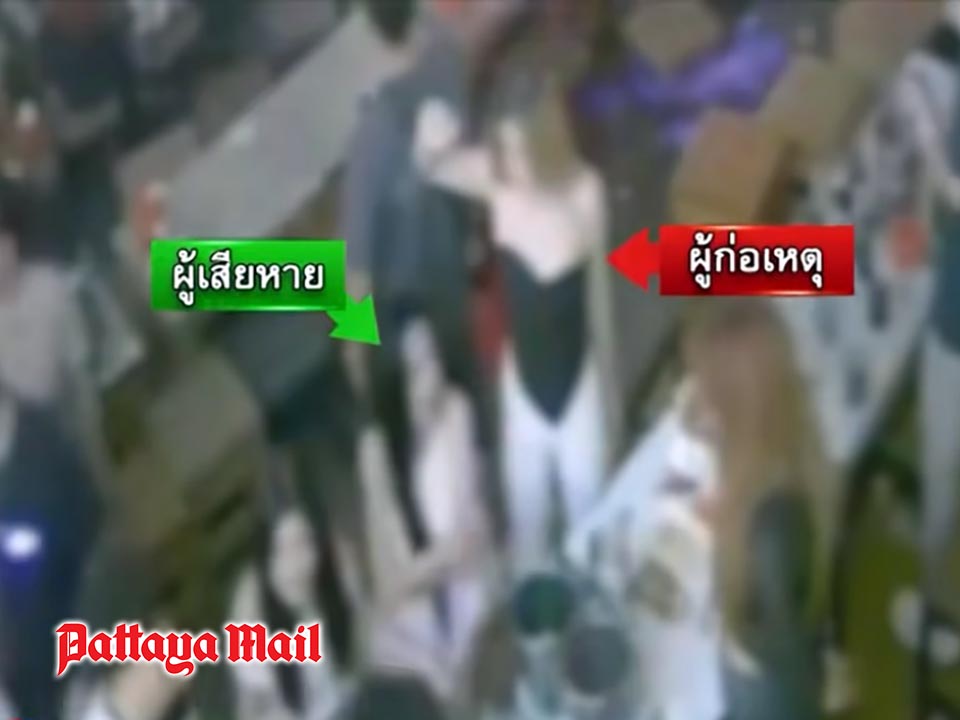


Refusing alcohol leads to assault: Woman beaten with a Coke bottle after declining to join a toast in Pattaya. PATTAYA, Thailand – A night out in Pattaya turned violent for a 37-year-old woman who says all she wanted was a quiet night out—and a glass of water.
Ms. Methip Wongphakdee has come forward to the media with CCTV footage and a bruised, swollen face after being assaulted at a well-known restaurant and nightlife venue on South Pattaya Road. The incident occurred in the early hours of June 1 and has left the city once again grappling with questions about public safety and the volatile atmosphere of some nightlife zones.
According to Ms. Methip, she and a friend arrived at the venue around 1:00 AM and were seated by staff at a cramped table just inches from the next group. By 2:20 AM, as she was sipping plain water—avoiding alcohol due to a recent cosmetic injection—three women from the neighboring table approached and invited her to clink glasses. She politely declined.That simple refusal triggered a storm. The neighboring group allegedly took offense, misinterpreting the gesture as condescension. What followed, Ms. Methip says, was brutal: hair-pulling, slaps with a hard object, and ultimately a blow to the face with a glass Coca-Cola bottle—just above her right eyebrow.
CCTV footage reportedly supports her account, showing the assault unfold. Police from Pattaya City Station intervened and escorted both parties to the police station. Despite attempts to mediate, no agreement was reached.“I can’t even leave the house,” Ms. Methip said tearfully. “My face is covered in bruises. I’m ashamed, and I’m scared that I won’t get justice. I’m asking the authorities to prosecute them fully and to make them pay damages.”

Woman speaks out after being attacked by a group in a Pattaya bar for not raising her glass.
The incident has sparked concern across social media, with many questioning the safety of nightlife in Pattaya, especially for those simply trying to enjoy a calm evening. That someone could be viciously attacked over refusing to “cheers” with strangers—while drinking water—has left many stunned.As Pattaya seeks to brand itself as a world-class tourist destination, this case may prove to be another reminder that building a safe, respectful nightlife culture is just as important as flashy venues and drink specials.
4 June 04 2025Pattayahttps://www.pattayamail.com/?p=503597 - Pattaya City officials join Banglamung ceremony honoring Her Majesty Queen Suthida’s birthdayPATTAYA, Thailand – On June 3, at 7:00 AM, Pattaya Mayor Poramet Ngampichet led city executives and department heads in a merit-making ceremony by offering dry food and rice to 48 monks and novices. The event, held in front of Banglamung District Office, was part of a nationwide celebration marking the birthday of Her Majesty […]
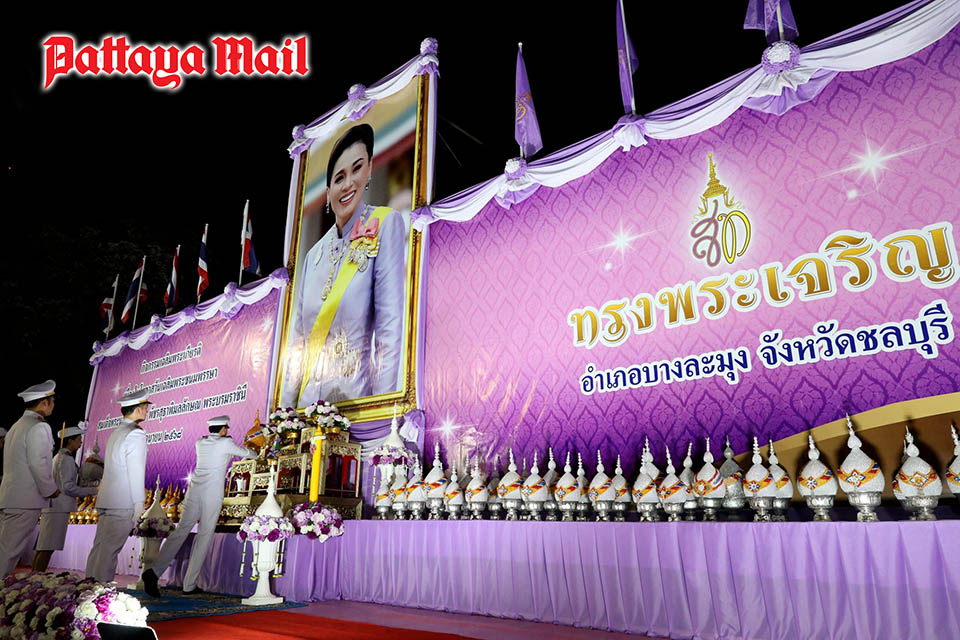

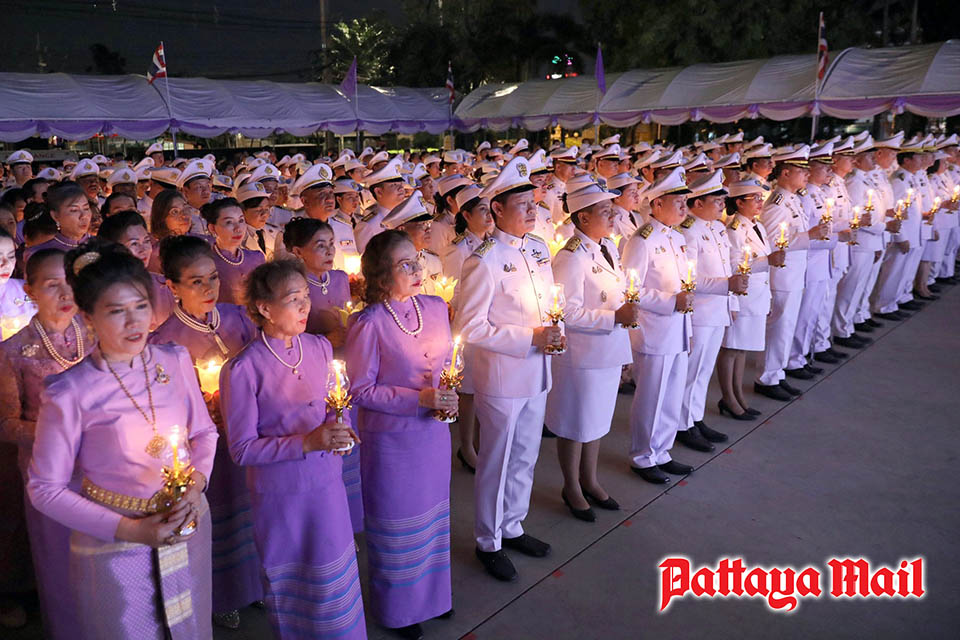
Officials and citizens light candles and offer prayers for Her Majesty Queen Suthida’s well-being on the occasion of her 47th birthday. PATTAYA, Thailand – On June 3, at 7:00 AM, Pattaya Mayor Poramet Ngampichet led city executives and department heads in a merit-making ceremony by offering dry food and rice to 48 monks and novices. The event, held in front of Banglamung District Office, was part of a nationwide celebration marking the birthday of Her Majesty Queen Suthida. Banglamung District Chief Patcharaphat Srithanyanont presided over the ceremony, which was attended by representatives from government agencies, state enterprises, the private sector, and the public.
Later, at 7:19 PM, an evening tribute ceremony took place featuring offerings of royal homage and candle lighting prayers for Her Majesty’s well-being. Pattaya City Council President Banlue Kullavanij led city officials in presenting tributes on behalf of the mayor. The ceremonies reflected the people’s loyalty and unity, with all sectors participating.
The evening event included the laying of flower trays before a portrait of Her Majesty the Queen, the lighting of candles, blessings, a rendition of the royal anthem, and the song Sadudee Chom Racha, concluding with three collective chants of Long Live the Queen.Her Majesty Queen Suthida was born on June 3, 1978. She was appointed Queen on May 1, 2019, and formally elevated to the royal title by His Majesty King Vajiralongkorn on May 4, 2019. She is the current Queen of Thailand in the Chakri Dynasty.

Mayor Poramet Ngampichet joins city officials in offering alms to monks in honor of Her Majesty Queen Suthida’s birthday at Banglamung District Office. 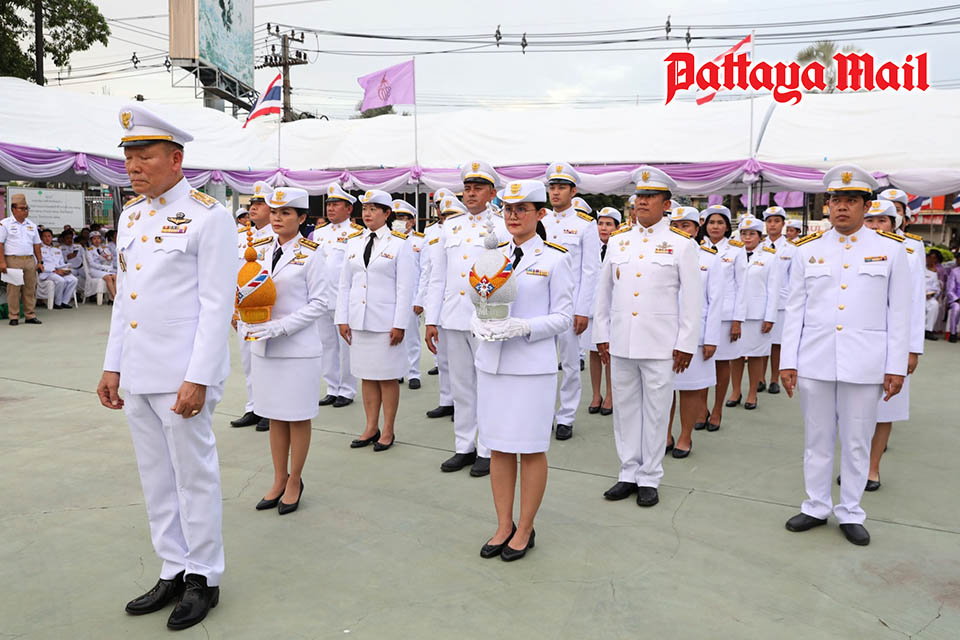
Representatives from all sectors gather to present floral tributes and participate in blessing ceremonies at Banglamung District Office. 
Banglamung District Chief Patcharaphat Srithanyanont leads the crowd in chanting “Long Live the Queen” during the royal celebration ceremony.

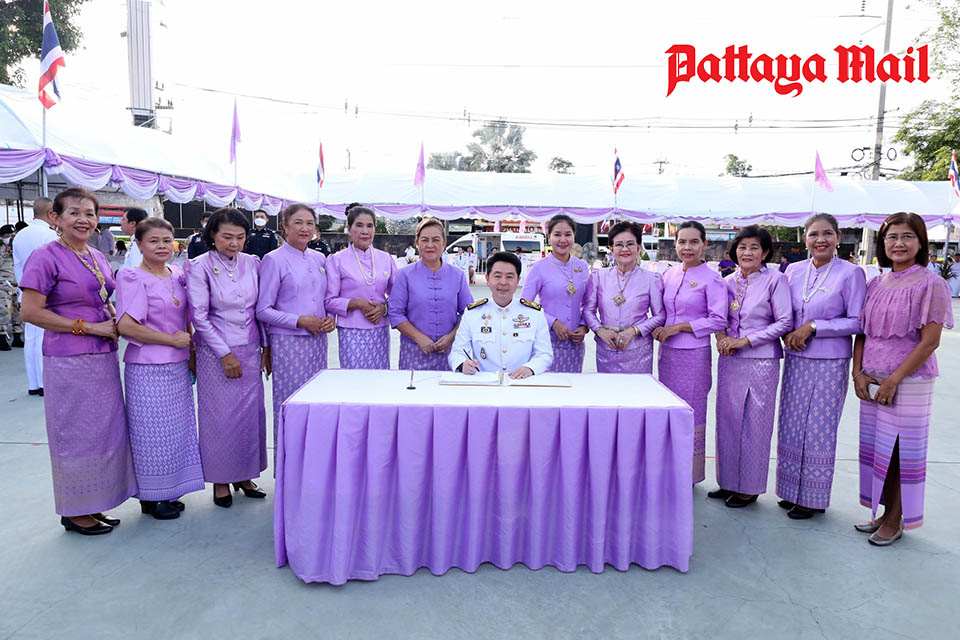
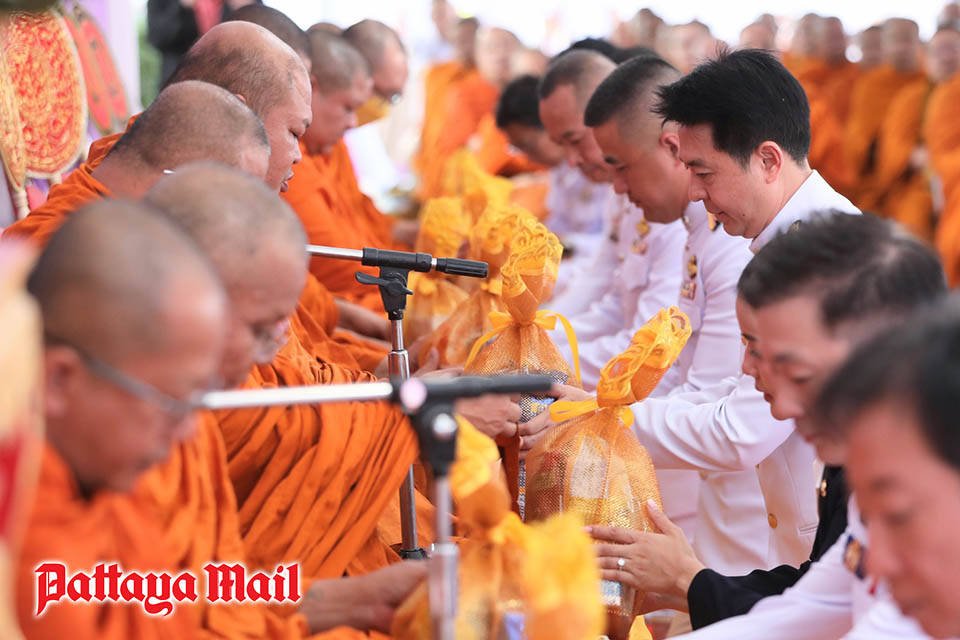
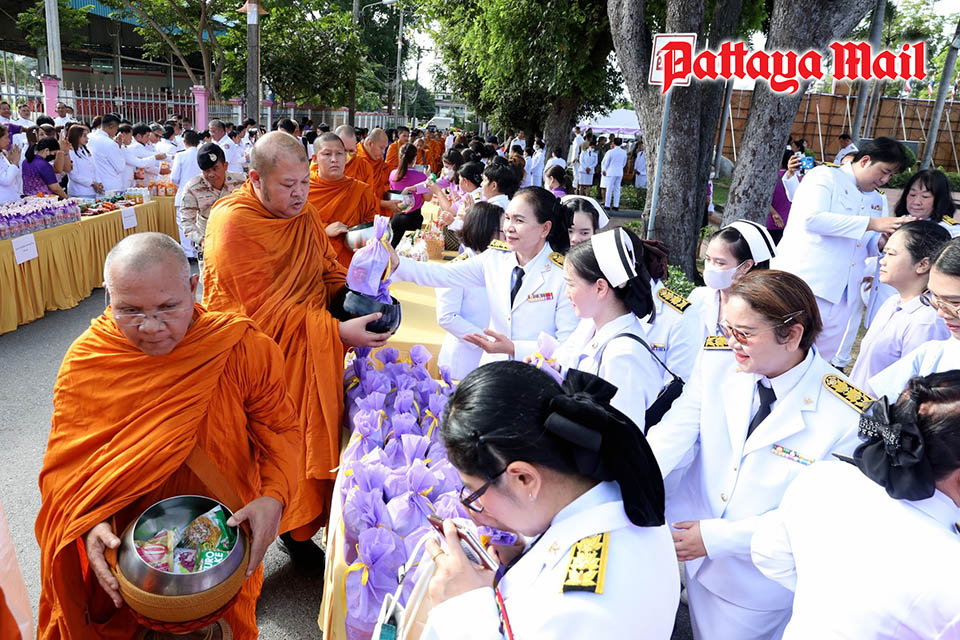


4 June 04 2025Pattayahttps://www.pattayamail.com/?p=503585 - Who should Pattaya police target most to improve road safety — Thai riders or foreigners?PATTAYA, Thailand – As Pattaya’s streets fill with foreign riders, authorities are stepping up efforts to ensure the new helmet laws are understood and followed by everyone. But the question remains — who should police focus on most to improve road safety? Many locals and observers agree that foreign riders are often unfairly blamed for […]
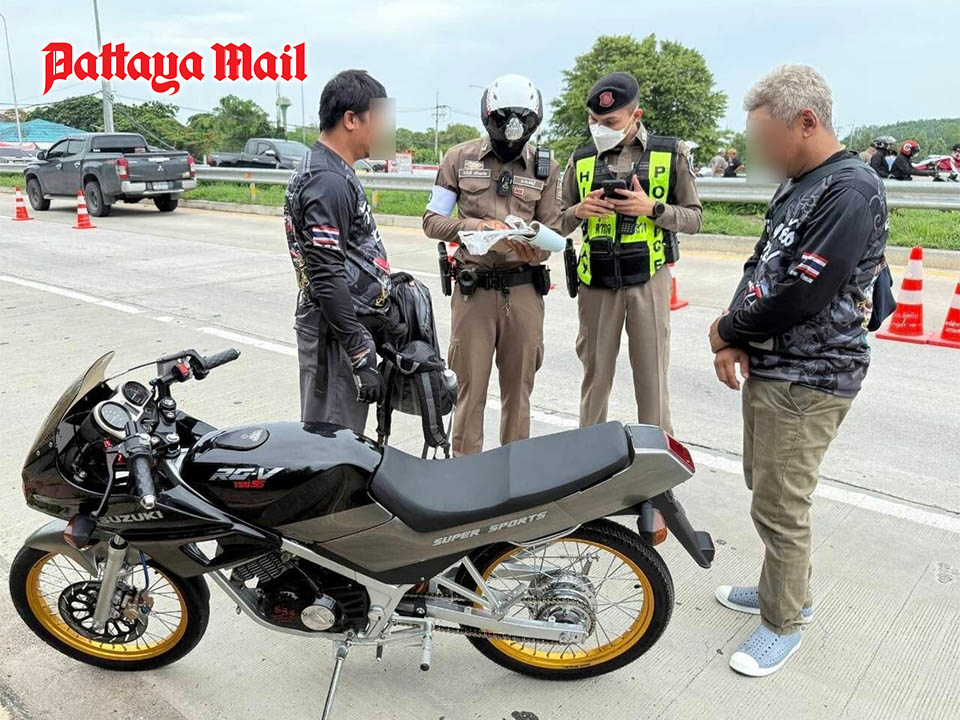


Helmets aren’t optional — they’re life-saving. Pattaya’s streets need more than laws; they need common sense from locals and tourists alike. PATTAYA, Thailand – As Pattaya’s streets fill with foreign riders, authorities are stepping up efforts to ensure the new helmet laws are understood and followed by everyone. But the question remains — who should police focus on most to improve road safety?
Many locals and observers agree that foreign riders are often unfairly blamed for traffic chaos. One comment sums it up: “Foreign riders generally are not the problem. It’s a beach town, everyone drives slow. In fact, they should just outlaw gasoline-powered scooters and use rickshaws… 5555.” Indeed, the relaxed vibe of Pattaya means that reckless driving isn’t limited to visitors alone.
Still, the issue of helmet compliance is a serious one. A frequent complaint is the widespread disregard some foreigners show: “I find it strange that in most foreign countries wearing helmets is law, yet some of those same citizens think they can come here and NOT wear one?? Arrogance, ignorance, holiday mode invincibility, lack of respect for Thai laws and police…” This highlights a dangerous cultural clash on the roads.But it’s not just about helmets. Reckless behavior like “5 on a bike, talking on the phone, holding a 6-month-old while driving, dogs on the bike, and cabs with kitchens on a bike should also be illegal,” according to another voice. These extreme examples show the complexity of the road safety challenges Pattaya faces.

From five-on-a-bike stunts to kitchen-on-a-scooter setups, Pattaya’s road chaos runs deep — and solving it starts with everyone. Foreign tourists sometimes also create hazards as pedestrians, often crossing streets carelessly by cutting green lights, darting across busy roads in the dark, or ignoring pedestrian crossings. These risky behaviors lead to crashes and add another layer of difficulty for authorities trying to keep everyone safe.
However, some foreigners argue that the traffic system and local driving culture also contribute heavily to safety risks. They say unclear signage, poorly maintained roads, and local riders frequently ignoring traffic rules are bigger problems. “It’s not just the tourists — many local drivers weave through traffic dangerously, and the road infrastructure doesn’t help,” says one expat. Others point out that some tourists may not be fully aware of Thai traffic laws due to language barriers or lack of proper orientation upon arrival.
Some argue that more serious focus should be on local riders and systemic issues: “Let’s hope so. Vietnam had a crackdown years ago which led to near 100% helmet compliance and the road death toll fell dramatically as a result. But do the RTP have the same discipline and care factor to stick to the task? Can only hope so, because a change in road culture will save thousands of young Thai lives.”The underlying frustration is clear: “I just don’t get it especially in Thailand. You don’t need a law to tell you to wear a helmet; common sense should tell you that you need a helmet. Thais I get it a little, but farang — yet I see it every day and the worst type of riding… must love drinking out of a straw.”
At the end of the day, road safety in Pattaya requires cooperation from everyone—locals and foreigners alike. The police must balance education and enforcement, targeting reckless behavior wherever it occurs, but also recognizing that respect for the law and common sense should be universal. Only then can Pattaya’s roads become safer for all.
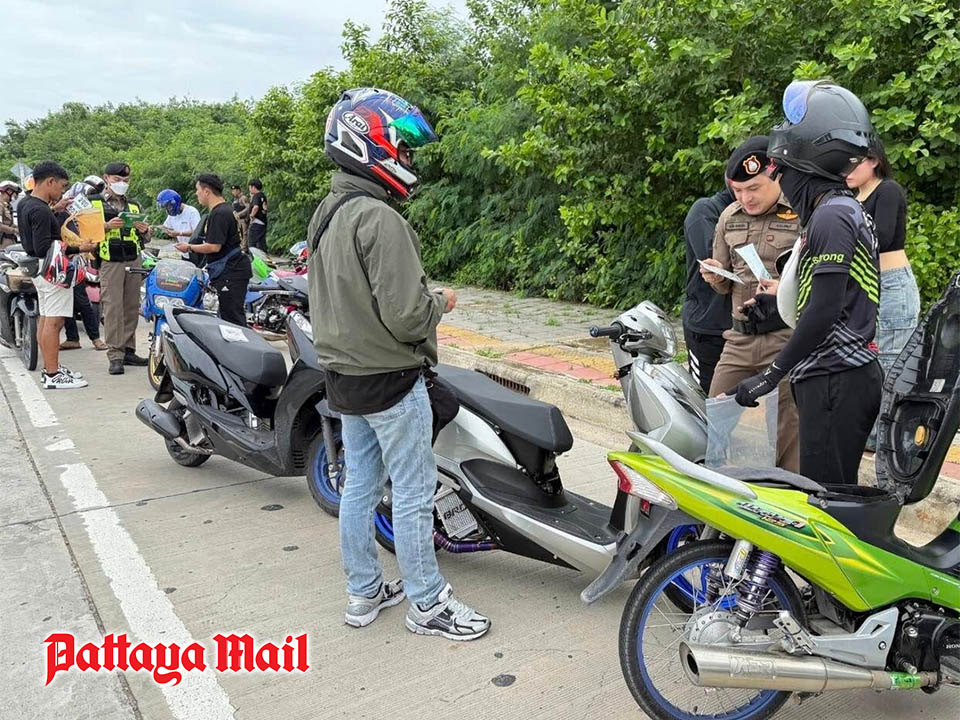
Helmet use remains inconsistent on Pattaya’s busy streets. If Vietnam can do it, why not Thailand?
4 June 04 2025Pattayahttps://www.pattayamail.com/?p=503580 - 77-year-old retired navy officer lost after driving 230 km from Sattahip, runs out of fuel near Trat77-year-old retired navy officer lost after driving 230 km from Sattahip, runs out of fuel near TratPATTAYA, Thailand – The Trat Provincial Police 191 Emergency Center received a call from a kind citizen reporting a broken-down car at a left turn near the Trat Hospital intersection in Mueang District, Trat Province on June 1. Traffic police quickly arrived and found the sedan with the driver, retired navy officer Lt. Monthon (surname […]
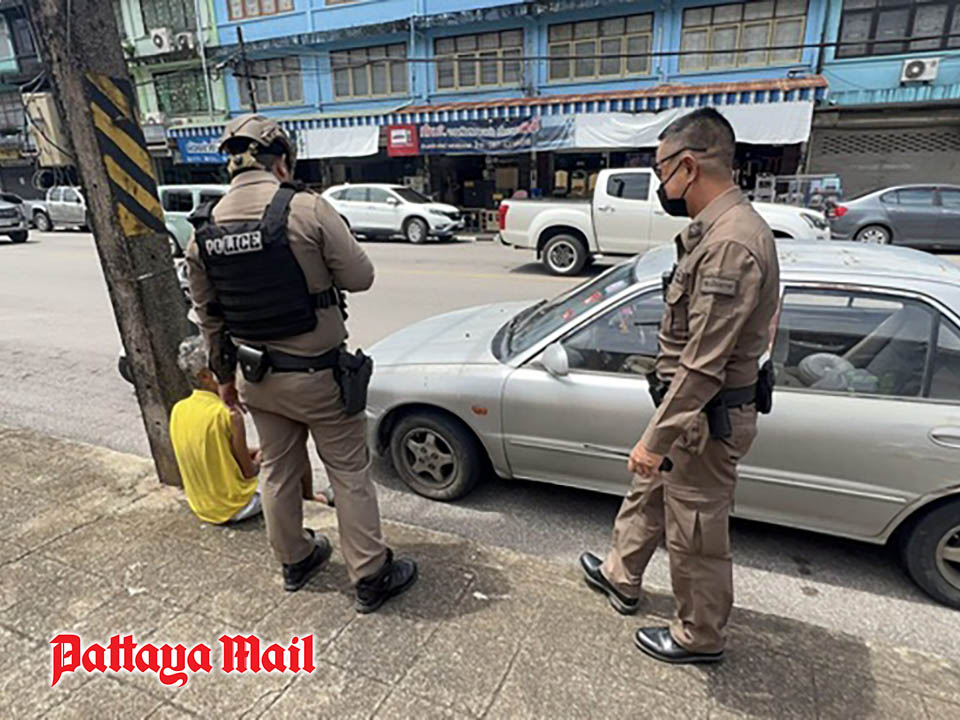


Lt. Monthon, a retired navy officer, was found stranded on a busy road in Trat after unknowingly driving from Sattahip and running out of fuel. PATTAYA, Thailand – The Trat Provincial Police 191 Emergency Center received a call from a kind citizen reporting a broken-down car at a left turn near the Trat Hospital intersection in Mueang District, Trat Province on June 1. Traffic police quickly arrived and found the sedan with the driver, retired navy officer Lt. Monthon (surname withheld), inside. The car had run dry. With help from the police and the good Samaritan, the vehicle was safely pushed off the road.
Officers from Mueang Trat Police Station arrived and tried to convince Lt. Monthon to rest at the station while they contacted his family, worried about the hot weather and his well-being. But Lt. Monthon insisted on staying by the car, still believing he was in Sattahip. Shortly after, his family called, and the police helped arrange for them to pick him up.
It was later revealed that Lt. Monthon, 77, had become confused and lost his way. He had intended to drive home to Sattahip but had unknowingly traveled all the way to Trat—over 230 kilometers—before running out of fuel.
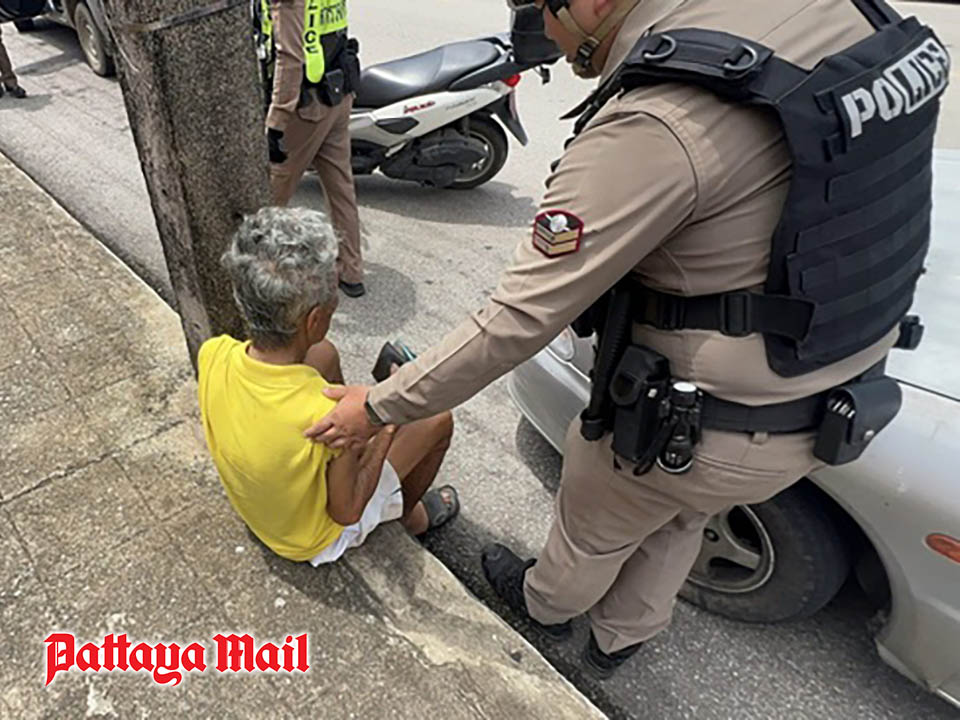
Despite police urging him to rest, Lt. Monthon insisted he was still near home before family arrived to bring him back safely.
4 June 04 2025Pattayahttps://www.pattayamail.com/?p=503576 - The Darker Side of Thailand’s 60-Day Free Visa – What optimistic tourists and Pattaya locals should knowPATTAYA, Thailand – Thailand’s recent move to extend free visa stays from 30 to 60 days for travelers from 93 countries, starting July 15, 2024, was widely welcomed as a bold step to revive tourism post-pandemic. The government aimed to boost the economy by attracting more visitors and business travelers with easier access and longer […]
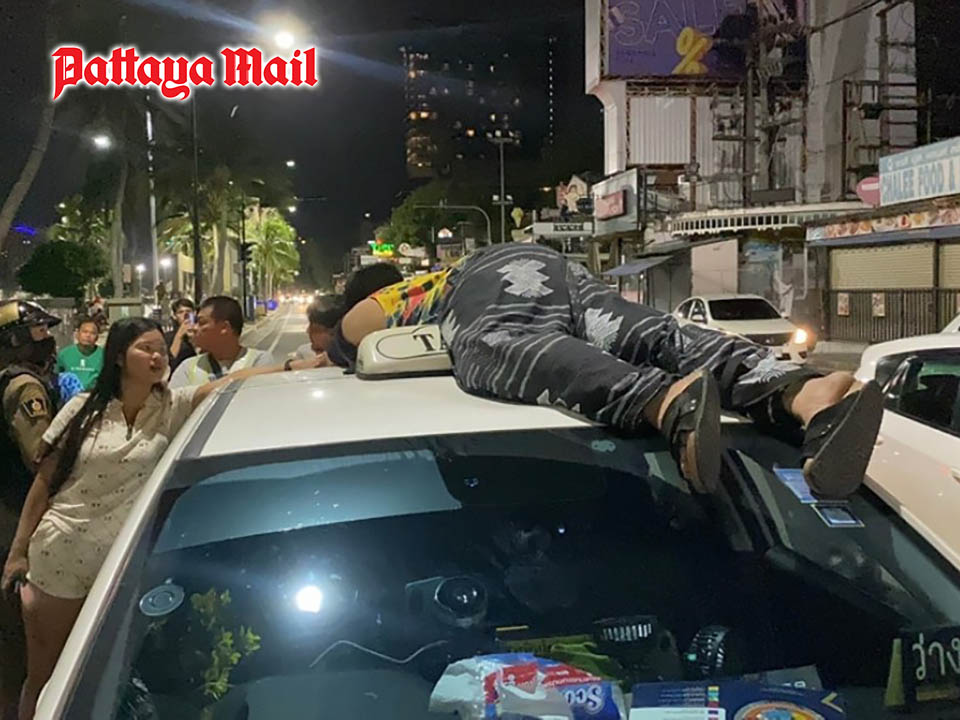


“Free Visa” Policy Fails to Boost Tourism — “Criminals” take advantage to hide. PATTAYA, Thailand – Thailand’s recent move to extend free visa stays from 30 to 60 days for travelers from 93 countries, starting July 15, 2024, was widely welcomed as a bold step to revive tourism post-pandemic. The government aimed to boost the economy by attracting more visitors and business travelers with easier access and longer stays.
But beneath the optimistic surface, serious concerns are emerging—especially in popular tourist hubs like Pattaya.
Despite the visa extension, tourist arrivals in early 2025 have not rebounded as hoped. Research from Kasikorn Research Center reports a slight decline in foreign tourists visiting Thailand during the first months of 2025 compared to the previous year, projecting an annual drop of nearly 3%. Factors such as the global economic slowdown, geopolitical tensions, rising costs, and stiff competition from neighboring countries like Vietnam and Japan have dampened tourism demand.
The most troubling issue for Pattaya, and the country overall, lies not in tourist numbers but in who is coming under the new free visa scheme. Officials from the Immigration Bureau have quietly acknowledged a rise in foreign criminals exploiting the relaxed visa rules to evade justice abroad by entering Thailand as “tourists.” With the visa-free stay extended to 60 days—and the possibility to extend another 30 days—Thailand has unintentionally become a haven for those seeking to hide from law enforcement in their home countries.
These individuals sometimes open souvenir shops, food stalls, or even small hotels, blending into the tourist economy while using the cover to lay low. Local businesses have raised complaints that some foreigners arriving under the free visa program end up competing unfairly with Thai workers and operators, disrupting local job markets.

Thailand’s 60-day free visa policy struggles to boost tourism amid rising competition and economic challenges. Pattaya, with its open economy and bustling tourism sector, is particularly vulnerable. The city’s relaxed atmosphere and numerous informal businesses make it easy for criminals to disappear into the crowd. Law enforcement agencies have reported increased cases of foreign fugitives caught hiding in Pattaya, underlining the unintended consequences of the visa policy.
Given these challenges, many in the tourism industry have begun calling for the government to reconsider the 60-day visa exemption and reduce it back to 30 days. They argue that while easing entry was intended to boost tourism, it now facilitates illegal activities and threatens the city’s reputation and safety.
Experts stress that the government must balance economic recovery with stronger immigration controls, increased scrutiny, and cooperation with international law enforcement to prevent Thailand from becoming a sanctuary for criminals disguised as tourists.
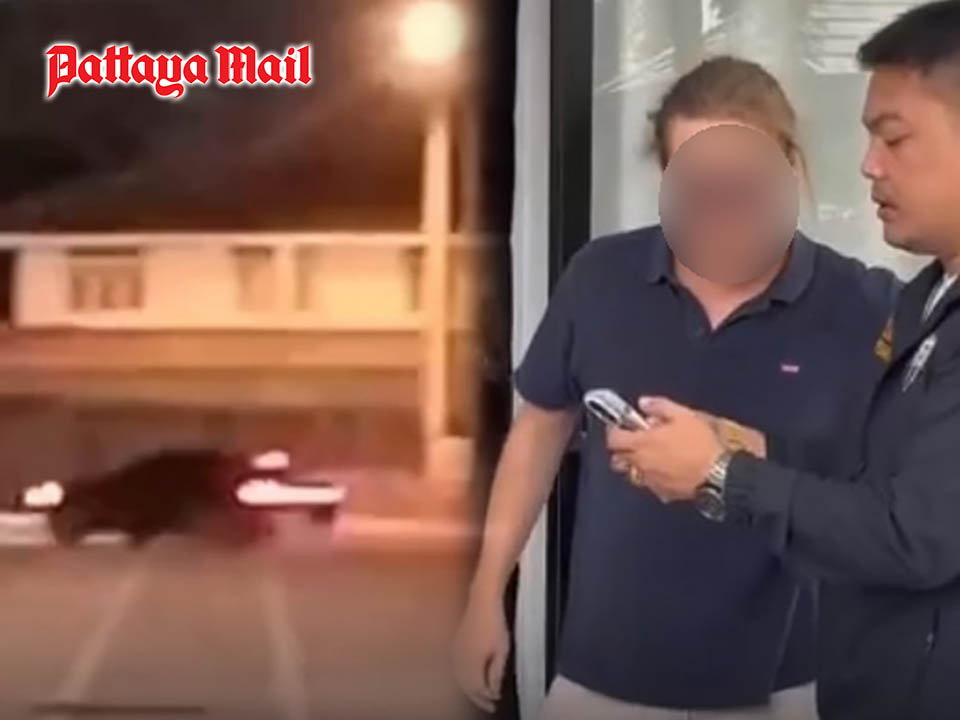
Easier entry rules also open doors for criminals using tourist visas to hide in Thailand. What Pattaya Optimists Need to Know
-Free visa ≠ More tourists: While visa restrictions eased, global economic and geopolitical headwinds continue to reduce tourist arrivals overall.
-Hidden risks exist: Longer visa-free stays attract not only tourists but also criminals seeking refuge.
-Local impact: Illegal foreign workers and business operators undercut local jobs and services.
-Safety concerns: Pattaya’s image as a safe tourist destination can be undermined by increasing criminal presence.
-Policy rethink underway? Some tourism and government officials suggest reverting the free visa stay back to 30 days to address these problems.
Kasikorn Research Center reported that from January 1 to May 11, 2025, foreign visitors totaled 12.9 million, a 1% decrease year-on-year. They forecast that for the entire year, foreign tourists could decline by 2.8% to 34.5 million people, leading to a 3% drop in tourism revenue compared to 2024, amounting to approximately 1.62 trillion baht.Several negative factors contribute to this decline. The global economy is slowing, which affects travel plans and spending; tourists increasingly seek destinations that fit their budgets and offer good value. Political tensions and geopolitical conflicts, such as the ongoing war between Russia and Ukraine and instability in the Middle East, continue to affect travel. Even though the India-Pakistan airspace conflict has ended and flights resumed, these geopolitical uncertainties reduce travel confidence.
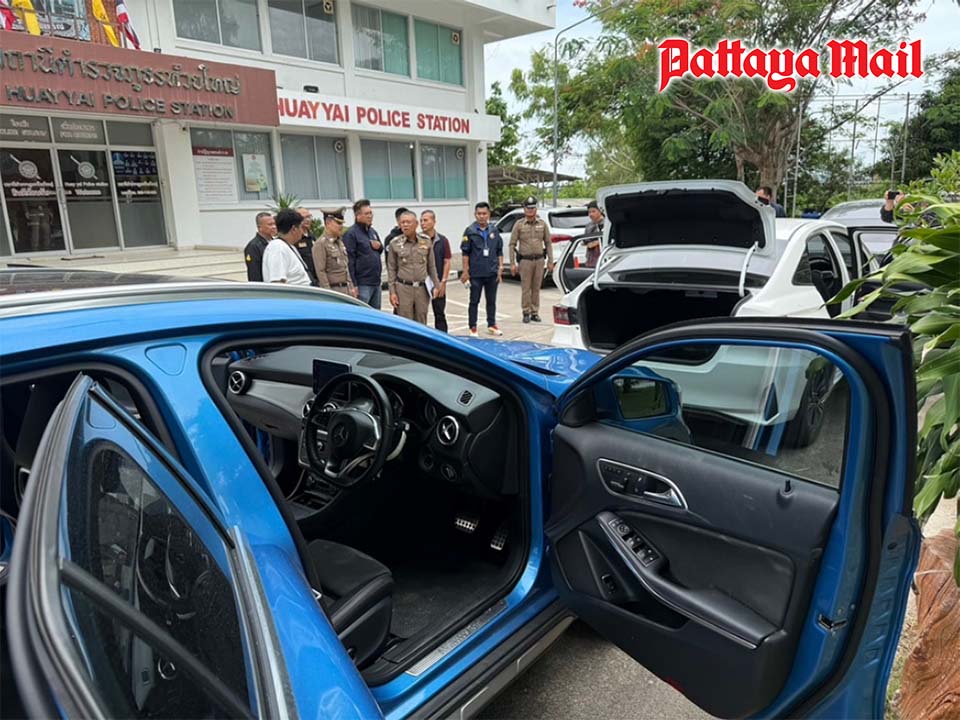
Tourism operators urge the government to shorten visa-free stays, citing illegal work and increased safety concerns. Thailand’s tourism competitiveness is also weakening. Foreign tourist numbers have been falling while destinations like Japan and Vietnam see increases. Two key factors hurt Thailand’s appeal: perceived safety concerns among some tourist groups, especially Chinese tourists, due to incidents early in 2025; and rising prices for tourism services.
The average daily room rate in Thailand rose 34% in 2024 compared to 2019, higher than the 28.3% increase in other sampled countries. Food and service prices have also increased due to rising costs. After subtracting travel and accommodation expenses, many tourists have little budget left for other spending. Thailand’s average spending per trip is around 1,300 USD, lower than Japan (1,600 USD) and Singapore (1,700 USD), which raises questions about value for money compared to competitors.
International competition is intense, with governments supporting tourism development to attract visitors. For example, South Korea plans to offer free visas for Chinese group tourists during China’s peak travel season in Q3 2025. Vietnam will issue 10-year long-stay visas to attract foreigners and boost tourism.Airline flight schedules reflect changing tourist interests. For international flights scheduled through September 2025, flights to China grew by 18% compared to the same period in 2024, Japan flights increased by 16%, but flights to Thailand only rose by 8%.
Thailand’s 60-day free visa policy was launched with the best intentions to revive tourism, but it has exposed vulnerabilities that Pattaya’s community and travelers must acknowledge. Optimism is welcome, but awareness and caution about the darker side of this policy will be crucial to protect Thailand’s tourism industry and maintain Pattaya’s reputation as a vibrant yet safe destination.

Despite efforts, foreign visitor numbers decline as price hikes and geopolitical tensions weigh on Thailand’s appeal.
4 June 04 2025Pattayahttps://www.pattayamail.com/?p=503569 - Thailand has a long way to go as some still use the homeland as a scam hubPATTAYA, Thailand – Thailand is showing signs of becoming a safer country, with law enforcement intensifying crackdowns on international scam networks that exploit local systems. However, the journey toward restoring trust and securing the nation’s digital and economic environment remains long and arduous — especially when some Thai nationals continue to weaponize their own country […]
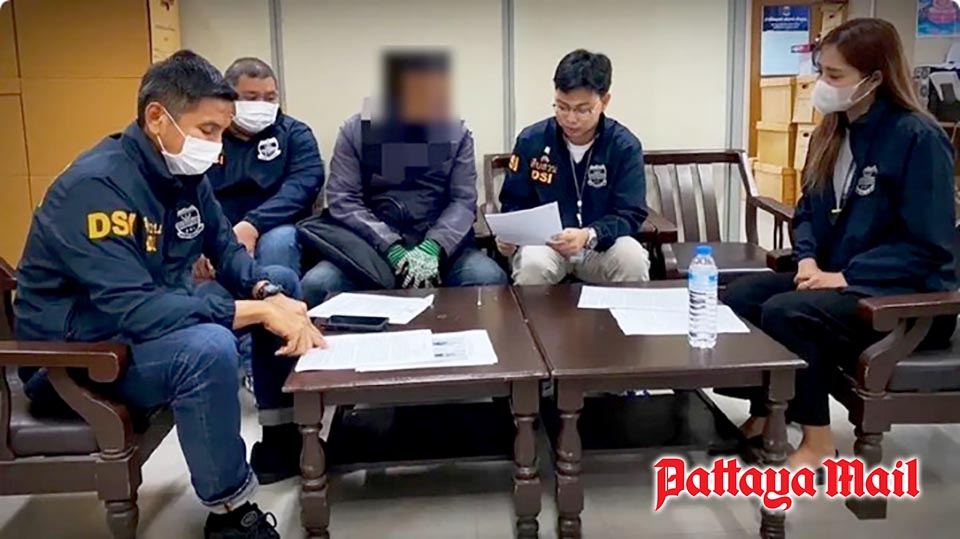


Turning Home into a Scam Hub: Thai man caught in billion-baht fraud as authorities uncover 28 fake companies used in transnational jet parking scam. PATTAYA, Thailand – Thailand is showing signs of becoming a safer country, with law enforcement intensifying crackdowns on international scam networks that exploit local systems. However, the journey toward restoring trust and securing the nation’s digital and economic environment remains long and arduous — especially when some Thai nationals continue to weaponize their own country as a platform for large-scale fraud.
A recent case uncovered by the Department of Special Investigation (DSI) starkly illustrates the depth of the problem. In what is now known as Case No. 118/2566, the DSI successfully arrested a Thai man linked to a billion-baht international scam operation that used fake companies and fraudulent websites to deceive victims across borders.The investigation revealed a transnational criminal network that had registered over 28 fake companies in Thailand. These entities were used to create a veneer of legitimacy to trick victims — particularly foreigners — into transferring funds. One of the more audacious scams involved fake emails and documents claiming to offer private jet parking spaces at Don Mueang Airport, leading victims to transfer millions of baht to the accounts of these bogus firms.
The DSI’s Center for Surveillance and Intelligence tracked the suspect and apprehended him outside their headquarters on Chaeng Wattana Road in Bangkok. The suspect is facing a staggering list of charges, including:-Participation in a transnational criminal organization
-Computer-related fraud that jeopardizes public security and the national economy
-Impersonation to deceive and defraud
-Money laundering
-Conspiracy to commit money laundering
The suspect was read his rights in accordance with Thai criminal procedure and was informed that the entire arrest would be recorded under the Prevention and Suppression of Torture and Enforced Disappearance Act of 2022. He acknowledged the charges and was handed over to the appropriate investigators for prosecution.The scope of the damage is enormous. Authorities found that the gang was behind more than 2,000 fake websites, advertising non-existent goods and services, with an estimated total loss of over 2 billion baht. The arrested individual, the 10th suspect captured out of a total of 24, played a critical role:
- Sourcing personal documents of others to fraudulently register companies.
- Personally registering 28 fake firms on behalf of the scam operation.
- Enabling the gang to carry out large-scale fraud.
- Assisting in email phishing campaigns to deceive victims into paying bogus jet parking fees.
- Facilitating transfers of at least 3 million baht from Thai victims and 4.5 million baht from foreign victims — with the latter yet to file official complaints.
These revelations underscore a critical point: while Thai authorities are increasingly proactive and transparent in exposing and dismantling fraud networks, there is still a long road ahead. The fact that such scams were made possible through local institutions, using Thai citizens to front company registrations, is a reminder of the vulnerabilities that exist within Thailand’s business and regulatory ecosystems.
Efforts by agencies like the DSI offer hope, especially as they move to expose and prosecute both the digital and human infrastructure behind these crimes. However, systemic change will require tighter oversight of company registrations, improved digital literacy among the public, and greater international cooperation to tackle financial crimes that respect no borders.
For now, Thailand feels marginally safer — but until the nation no longer serves as a convenient base for global scam networks, that safety remains fragile.
4 June 04 2025Pattayahttps://www.pattayamail.com/?p=503566 - Too Rich to Go Free? Thailand mulls travel tax for outbound jet-settersPATTAYA, Thailand – As millions of Thais pack their bags for luxury escapes to Japan, Europe, or Korea — all while flooding Instagram with airport selfies — the Thai Revenue Department is asking a pointed question: should the privilege of international travel come with a price tag for the nation? The department, under the leadership […]
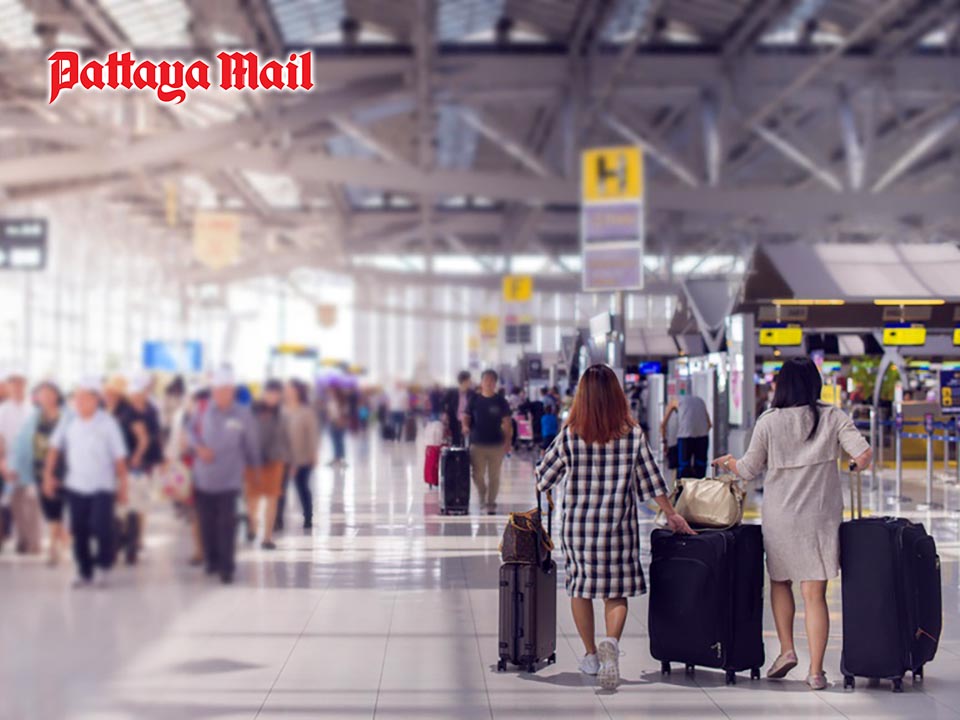


Thai outbound travelers may soon face a new travel tax as the government looks to boost revenue. PATTAYA, Thailand – As millions of Thais pack their bags for luxury escapes to Japan, Europe, or Korea — all while flooding Instagram with airport selfies — the Thai Revenue Department is asking a pointed question: should the privilege of international travel come with a price tag for the nation?
The department, under the leadership of Director-General Pinsai Suraswadi, has confirmed that it is actively studying the feasibility of reinstating an outbound travel tax on Thai citizens. The move is being floated as part of broader efforts to increase state revenue in the 2026 fiscal year, which targets a collection of 2.4 trillion baht, up 100 billion baht from the previous year.
“In the past, we used to collect a travel tax,” said Pinsai. “But it was scrapped during an economic crisis when fewer Thais could afford to go abroad. That situation has now reversed.”Indeed, despite global inflation and a weak baht, international departures by Thai travelers have rebounded strongly. From shopping sprees in Seoul to ski holidays in Hokkaido, outbound travel is no longer just for elites — but for a sizeable upper-middle class that appears largely insulated from domestic economic pressures.
According to the Revenue Department, this group represents a lucrative opportunity. If millions can afford overseas leisure trips, the logic goes, they can afford to contribute a modest sum to the state coffers — particularly when the government is hunting for fresh sources of tax income.
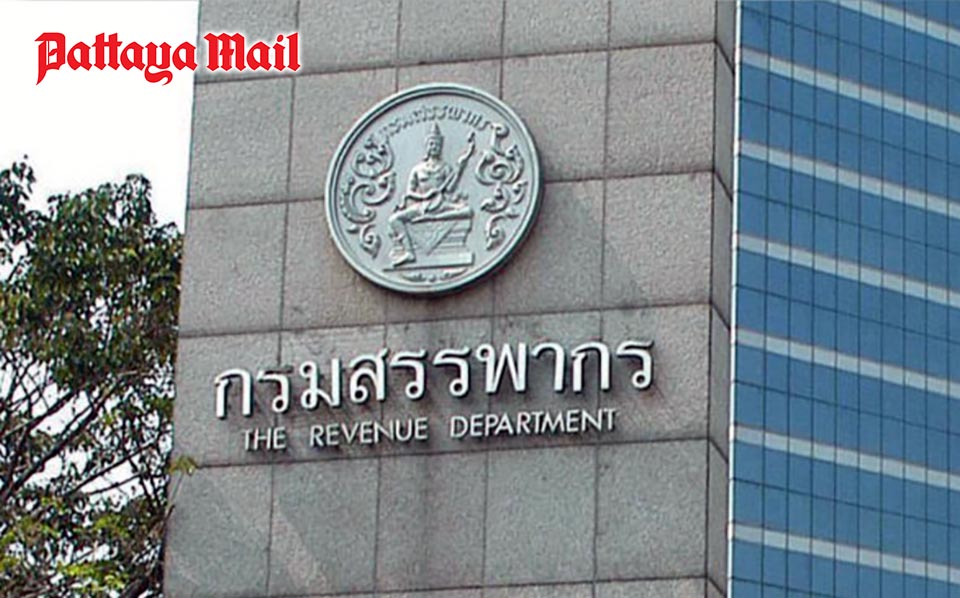
From airport gates to tax debates, the Revenue Department considers a levy on millions of Thais heading abroad each year. But implementing such a tax isn’t without complications. Unlike in the past, when Thai outbound travelers were a small group, today’s scale raises logistical challenges. The department must determine whether the cost of administering such a tax outweighs the benefits, and how it would be collected — whether through airlines, immigration systems, or travel agencies.
Other countries already levy similar fees. Japan, for instance, imposes a 1,000-yen “Sayonara Tax” on outbound travelers to support tourism infrastructure. Thailand could adopt a similar flat-rate model or consider a tiered structure based on destination, travel class, or ticket price.
The proposal is still under review and will ultimately depend on a green light from the cabinet. But it arrives amid a broader push by the Revenue Department to bring more income into the system, including cracking down on under-the-radar cash businesses, nightlife operators, and even online sellers.Critics might argue the tax would unfairly burden middle-class families or discourage international travel. Supporters, however, see it as a reasonable civic duty for those who are, as the saying goes, “rich enough to fly, rich enough to share.”
As the debate unfolds, one thing is clear: free takeoffs may soon come with a price — even before wheels leave the runway.
4 June 04 2025Pattayahttps://www.pattayamail.com/?p=503562 - End of the Road? – Traditional taxis left behind as airport passengers turn to Grab for trips to Pattaya and beyondPATTAYA, Thailand – At Bangkok’s Suvarnabhumi Airport, the taxi rank is beginning to look more like a museum exhibit — a row of vehicles waiting for passengers who no longer come. Travelers, both Thai and foreign, are increasingly bypassing traditional taxis in favor of ride-hailing apps like Grab. The shift is so pronounced that a […]
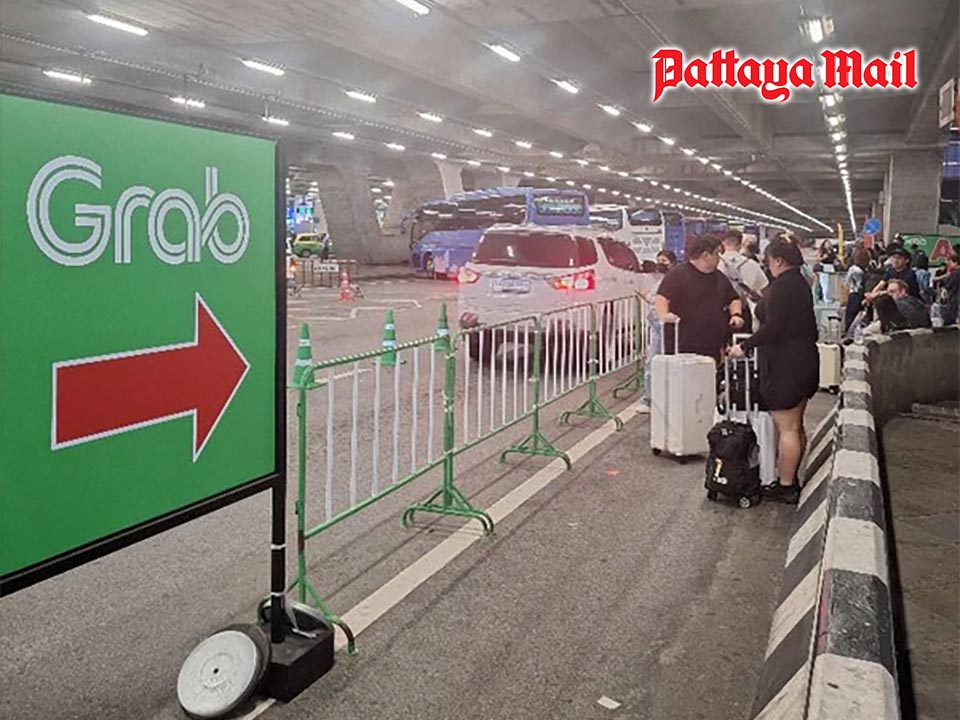


From Suvarnabhumi to Pattaya, passengers ditch taxis for Grab — and they’re not looking back. PATTAYA, Thailand – At Bangkok’s Suvarnabhumi Airport, the taxi rank is beginning to look more like a museum exhibit — a row of vehicles waiting for passengers who no longer come. Travelers, both Thai and foreign, are increasingly bypassing traditional taxis in favor of ride-hailing apps like Grab. The shift is so pronounced that a popular local Facebook page recently posted photos of passengers streaming past the taxi line, opting instead for pre-booked Grab cars with designated staff on hand to assist them with app downloads, trip advice, and customer support.
“Now I understand why the taxi drivers are always complaining,” one post read. “Everyone walks straight out of the terminal and heads for Grab. The service is better, and there’s staff to help tourists get set up.”
The comments under the post were even more damning.
“They only want to pick up foreigners going to Pattaya or Hua Hin. If a Thai person asks to go somewhere nearby, they pull a sour face like you just ruined their day.”“They’ve done it to themselves. Always trying to get you to accept a flat fare. If you refuse, they complain the whole way. No GPS, no help with bags, and when you don’t tip, they throw in a sarcastic comment. After that, I stopped using taxis in Thailand — unless I absolutely have to.”
“Every time I return to Thailand, it’s the same. They act annoyed, gossip with other drivers, and try to make you feel guilty so you’ll tip. It’s exhausting.”
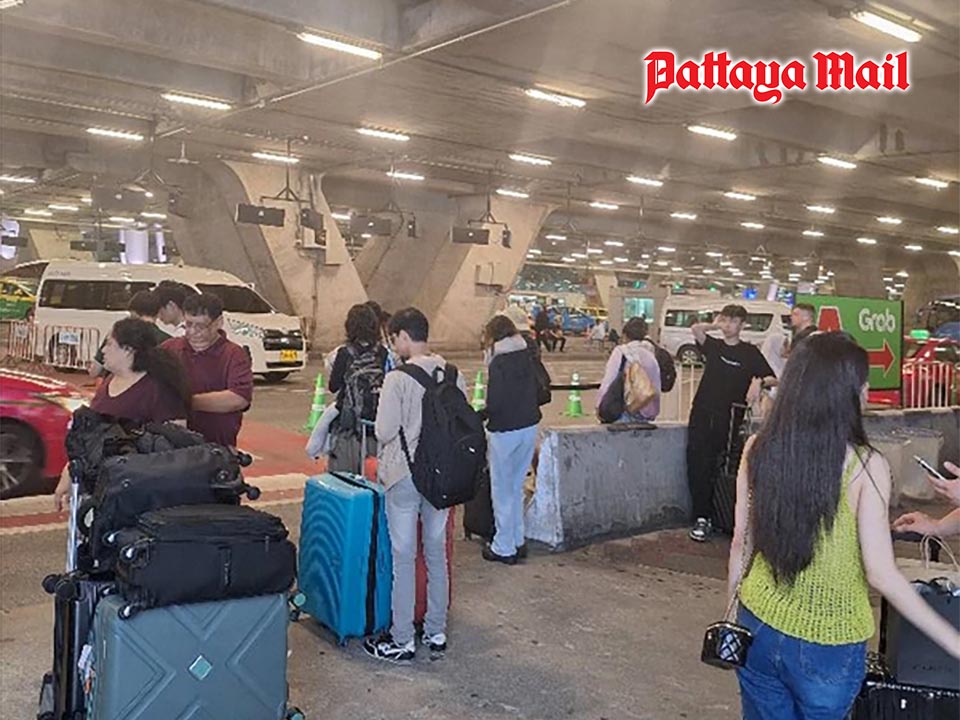
No Meter, No Manners, No More: Traditional taxis lose ground to ride-hailing apps. “Once I got yelled at for hailing a cab to Ramkhamhaeng University. It was only a 3-4 km trip, but the driver ranted the whole way about how I should’ve walked. I’d just arrived from the provinces to attend my nephew’s graduation — how was I supposed to know where the university was?”
This trend marks a tipping point for Thailand’s legacy taxi industry — particularly for drivers hoping to cash in on long-distance fares to destinations like Pattaya. Where once airport taxi stands were hotspots for lucrative intercity rides, they’re now being outpaced by digital platforms that offer transparency, predictability, and — crucially — better manners.
In the age of online reviews, fixed app pricing, and customer ratings, passengers are simply choosing peace of mind over unpleasant haggling.
And when a 90-minute trip to Pattaya costs about the same but comes with better service and less drama, the choice is easy.
If Thailand’s traditional taxi sector hopes to survive — let alone thrive — it must evolve, fast. Because from Bangkok to Pattaya, the road ahead no longer runs through the meter. It runs through the app.
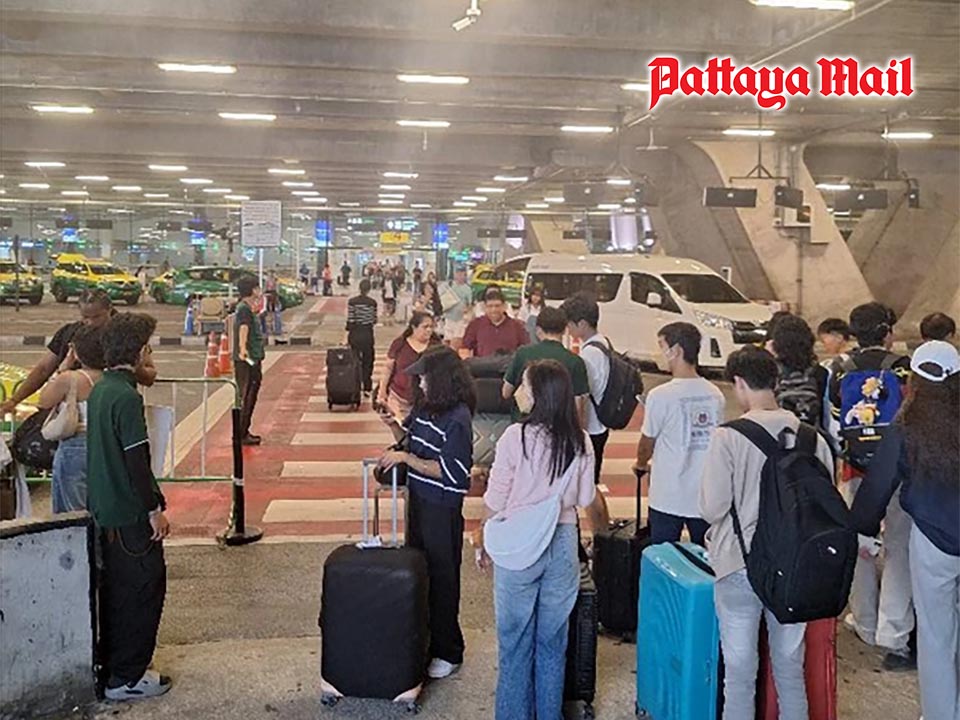
Taxi Turmoil: Complaints mount as tourists choose tech over Thai cabs.
4 June 04 2025Pattayahttps://www.pattayamail.com/?p=503557 - Not a Joke This Time – From Pattaya roads to Bangkok intersections, police mean business under the new traffic discipline campaignPATTAYA, Thailand – Starting June 1, the Thai government has officially launched a serious national road safety initiative — and this time, it’s no laughing matter. In both Bangkok and Pattaya, and across 94 critical road points nationwide, authorities are cracking down hard on traffic law violations, with a spotlight on motorcycle safety. Under the […]
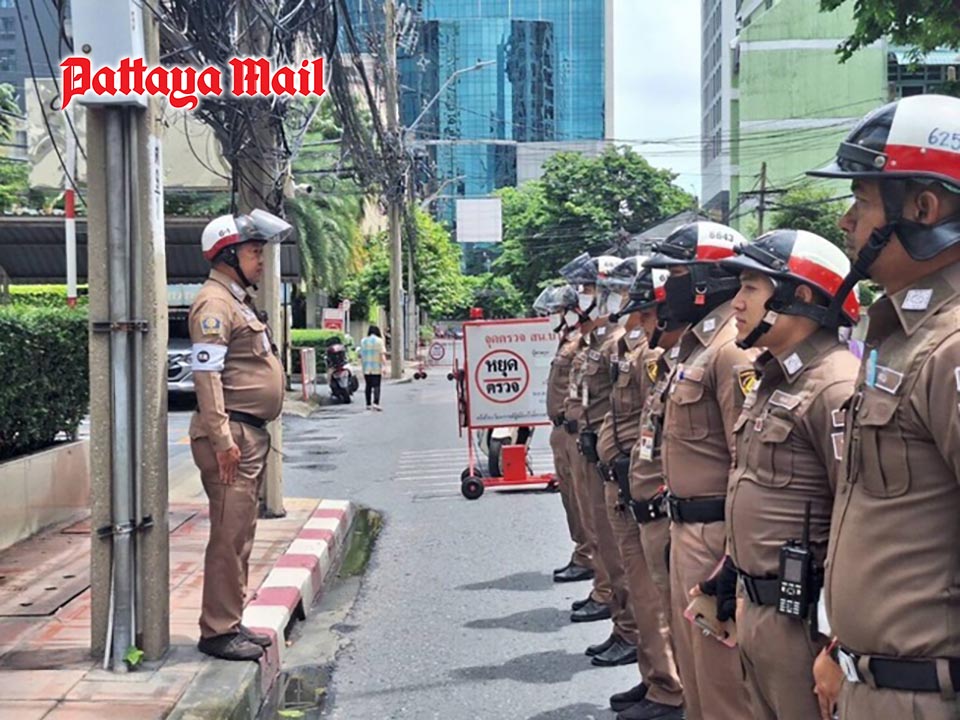


Strap It or Pay Up – Thailand launches “Safe Roads Project” with zero tolerance for unhelmeted motorcycle riders. PATTAYA, Thailand – Starting June 1, the Thai government has officially launched a serious national road safety initiative — and this time, it’s no laughing matter. In both Bangkok and Pattaya, and across 94 critical road points nationwide, authorities are cracking down hard on traffic law violations, with a spotlight on motorcycle safety. Under the new enforcement campaign, both drivers and passengers are required by law to wear helmets. Failure to comply will result in a 2,000 baht fine.
Police Lieutenant General Nitithorn Jintakanon, head of the Traffic Police Image Enhancement Task Force under the Royal Thai Police, confirmed the launch of the “Safe Roads Project”, a directive ordered by Police General Kraiboon Suadsong, Deputy Commissioner-General and Director of the Traffic Administration Center.
The goal? Restore discipline, reduce accidents, and protect lives — especially in areas with high rates of traffic violations, frequent accidents, and those near schools.Out of the 94 designated enforcement areas:
Bangkok has 11 critical zones under close monitoring.
Pattaya, falling under Provincial Police Region 2, is included among the 9 priority areas for that region.
In Pattaya, long-term residents and tourists alike are already seeing heightened police visibility, with officers stationed at popular intersections and tourist routes, stopping unhelmeted riders and issuing on-the-spot citations. Locals, often used to lenient enforcement, are expressing surprise — “This time they’re not playing,” said one motorbike taxi rider near Walking Street.In Bangkok, similar enforcement is underway in major urban districts, including Victory Monument and Lat Phrao, where traffic police are being praised for finally taking the rules seriously — though some commuters grumble that the sudden strictness is “years overdue.”
Police warn that no exceptions will be made, and enforcement will be strict, persistent, and ongoing. If you see flashing lights or traffic stops in these zones, don’t expect a polite warning — expect a fine.For emergency traffic issues or information, the public is urged to call the Highway Police Hotline at 1193 or the Traffic Police Hotline at 1197, available 24 hours a day.
Whether you’re heading out in Bangkok or cruising along Pattaya Beach Road — strap that helmet on, or prepare to pay.
4 June 04 2025Pattayahttps://www.pattayamail.com/?p=503554






